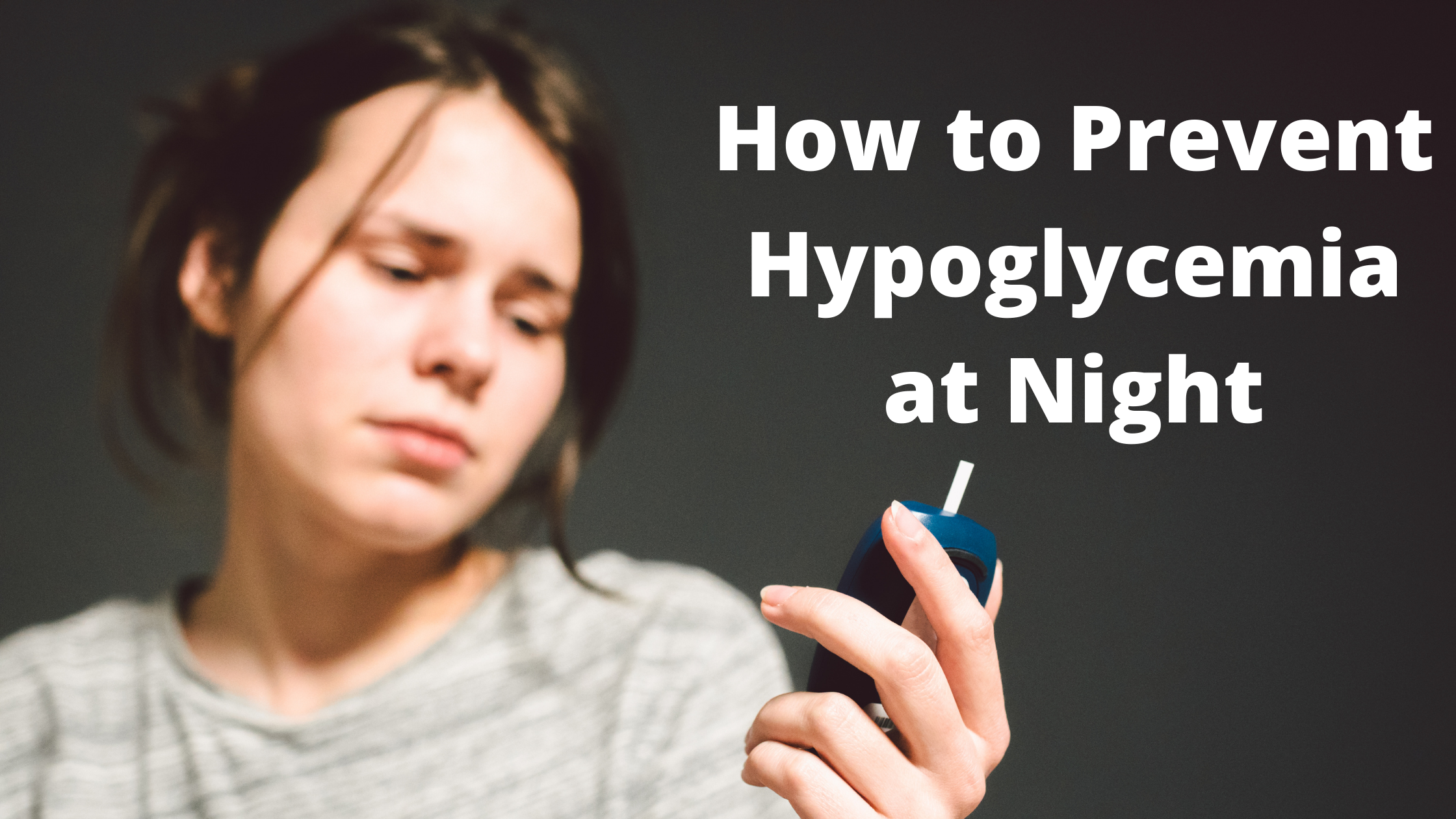
Hypoglycemia is a metabolic condition in which your blood sugar falls below 70 mg/dL. This is dangerous as your body depends on glucose for energy. Without it, it cannot properly function. Normally, throughout the night, your body has mechanisms to create more glucose from glycogen storage or fat. However, if you are diabetic and take insulin, then you may be at a higher risk for hypoglycemia if there is an imbalance between your medication and the amount of carbohydrates you have consumed. Here is more information on how to prevent hypoglycemia at night.
Signs and Symptoms of Hypoglycemia
Hypoglycemia symptoms are different from hyperglycemia symptoms. Hypoglycemia presents as nightmares that wake a person from sleep, shaking, sweating, fast or slow breathing, and low to no response. If you live with others, it's important that they recognize the signs and symptoms so you can get assistance immediately.
If you have diabetes, then you should have an emergency glucagon kit that your family or roommates know how to operate. If you can eat, do so, but if not, someone needs to call emergency services ASAP.
Some things that can increase your risk for hypoglycemia include:
- Skipping meals but not skipping medication or insulin
- Alcohol before dinner
- Exercising late at night
- Infection
Once hypoglycemia has resolved, it's important to call a physician and let them know, as there may be a concern about your medications and habits.
How to Prevent Hypoglycemia at Night
1. Avoid skipping meals
If you are diabetic or prone to low blood sugar and take insulin or any medications that increase the production of insulin in your body, then it's important that the medication and the meals add up. If you skip a meal, but continue to take your medicine, you are removing all the glucose from your blood without replacing it with a meal.
Try not to skip dinner, or at least have a snack before bed. If you are fasting or simply are not hungry, then make sure you don't take your medication at the same dose that you would with a full meal. Practice carb counting, and work with your doctor if you're unsure how to navigate that situation.
2. Check your levels before bed
Before you go to bed, check your blood sugar. If it is borderline low, then chances are, it will drop while you are asleep. Not only is this disruptive to your sleep and those around you, it is also very dangerous to put your body in situations where it does not have enough glucose to function. Go ahead and eat a snack to increase your levels, so when you're fasting throughout the night, you don't have to worry about going into a hypoglycemic state.
3. Adjust your exercise routine
Late-night exercising can have the same effect as skipping a meal because you are burning everything that you're consuming. Exercise is important, but if you're exercising too close to bed, 1. this can increase your heart rate, making it hard for you to go to sleep, and 2., this can leave your body without enough glucose. If you take insulin or another diabetic medication that increases insulin levels, and work out, you are leaving your bloodstream virtually no glucose to provide energy for the other organs.
4. Reduce your alcohol intake
Alcohol may also deplete your blood sugar. It tends to drop a few hours after consuming a certain number of drinks. If you decide to drink before bed, but notice that you have hypoglycemic events, then it may be best to reduce the amount of alcohol or make sure to eat and provide your body with some more carbs. Reducing alcohol may be the best move overall, as it can help reduce your weight and the other negative effects associated with alcohol.
5. Understand your risk factors
If you have comorbidities or other diseases along with diabetes, this may put you at an increased risk for hypoglycemic events. Therefore, you must pay attention to the number of carbs you're consuming, how it is associated with your medication, and any other habits that may increase the risk of having a hypoglycemic event.
If you are having trouble sleeping at night and think it may not be diabetes related, then please click the orange button below to take a free online sleep test and talk with one of our professionals.

